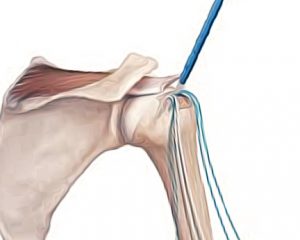
We all know that the thought of surgery can be extremely stress-inducing. Knowing what you can do to prepare for surgery will help you feel at ease. Some of the things you do will also help to support the recovery process.
A rotator cuff repair will usually require a type of surgery that is known as shoulder arthroscopy. In this type of surgery, your surgeon will use a scalpel to create a small incision at the operation site. This incision will be big enough to fit the arthroscope camera and other surgical instruments into the joint, but small enough that you will not require open surgery. Where open surgery can be avoided, this is always preferable. Open surgeries have more risk and can prolong the time it takes for you to recover. An arthroscopy, on the other hand, will minimise the risk of infection and you will be able to heal fast.
The surgical procedure your surgeon performs will be dependent on the issues you’re experiencing with your rotator cuff. These issues include torn or stretched ligaments causing shoulder instability, shoulder impingement, frozen shoulder, arthritis and damaged bicep tendons.
Prior to surgery, it is crucial that you develop good communication with your surgeon. Not only will this help you feel trust in the surgery, but it will also ensure that your surgeon is aware of any health risks you might have. Be sure to keep your surgeon abreast of all the over-the-counter and prescription medications you take, alongside any health supplements. Also let your surgeon know if you use tobacco products or consume alcohol. Your surgeon will need to be aware of any other chronic conditions or recent infections ahead of the surgery.
The best shoulder surgeons in Melbourne will recommend that you get plenty of rest and eat well prior to your surgery. Being at your mental and physical best will mean you are stronger going into the surgery, and therefore will most likely experience an easier healing process. Your surgeon will provide you instructions about food and fluid intake prior to surgery.
